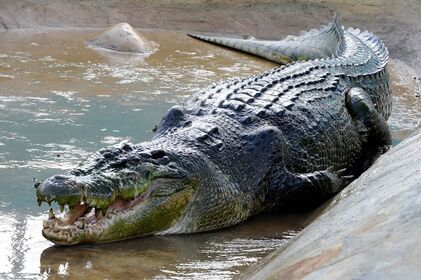With regard to normality, we might argue that history is a tale of invasions. There’s been nary a year in the past millennium without a war somewhere, so, yes, the invasion is normal in that historical context. Yet, many would regard it as an abnormal action, and the reason lies in the question of its ethicality. From the perspective of the Ukrainians, the invasion is an unprovoked evil aggression akin to the German invasions of World War II. Thus, what is perceived as abnormal and evil on one side is perceived as normal and good on the other. The Russians and Ukrainians surely differ on the matter.
Cultural differences do influence attitudes about normality and ethicality. Within cultures, people appear to distinguish normal and ethical actions from their opposites. For example, going to the IHOP in Carson City, Nevada to eat breakfast is a “normal” action in the United States. Going to that same IHOP to shoot people, as Eduardo Sencion did in September, 2011, before shooting himself, was abnormal and evil in the eyes of many Americans.
Cultural differences truly do alter perceptions of normality. A terrorist raised in a society of hatred for another segment of humanity perceives a suicide bombing not only as “normal,” but also as “good,” receiving accolades from those of like mind. Surely, there are Russians who, in spite of the state media’s quashing of information about the invasion, are aware of it and who today think the invasion is an ethical action.
If I used the terms ethical or normal with regard to attitudes and behaviors on social media, I would immediately subject myself to criticism: “Who is this guy to tell me what is ‘ethical’ or ‘normal’ behavior? Look at him. He’s not normal, and who knows, by his judgmental attitude, he certainly doesn’t come off as ethical. What’s that old saying in Christendom? ‘Let the one without sin cast the first stone.’ I don’t think he should be casting any stones.” Such criticism would be correct in the eyes of many, and I might agree that I’m not the model ‘normal’ human from others’ perspectives. But with regard to shootings in a breakfast joint or an unprovoked invasion of a country, suffice it to say that IHOP customers and Ukrainians are similar in designating the killing and invasion as abnormal and evil.
I don’t know if there is a “normal human,” but there certainly must be “abnormal” people. Why else, for example, does the American Psychiatric Association produce The Diagnostic and Statistical Manual of Mental Disorders (DSM–5)? Based on decades of case studies, psychiatrists appear confident to say that “normal” mentality is distinguishable from “abnormal” mentality. The question isn’t purely academic. Mentality breeds behavior. Behavior and mental states have consequences. That shooting in the IHOP and the invasion of Ukraine have consequences.
What of the term good? Should I be able to recognize “good,” a “good” attitude, a “good” behavior, or a “good” person? Is ethicality a universal or merely a cultural matter?
A Pope is a role model for “good,” isn’t he? Think Karol Józef Wojtyła, called Pope John Paul II. He ministered to a worldwide population. He even visited Mehmet Ali Agca, the man who shot him, in Rome’s Rebibbia prison to offer a forgiving hand. Popes are usually considered “good role models,” even by a secular press (Time picked Francis I as “Man of the Year” for 2013). The late John Paul II had plenty of good press, particularly for the role he seemed to play in freeing millions from a totalitarian government in the breakup of the Soviet Union. But not all those who served as a pope served others in the manner of John Paul II.
Some popes led lives whose retelling would require volumes of tabloids devoted specifically to their unethical exploits. Pope Alexander VI, born Roderic Llançol Borja, fathered his famous daughter Lucrezia (Lucretia) Borgia in an affair with Giovanna de Candia, contessa dei Cattanei, just one of his mistresses. Roderic had other children, and he used his position of power to enhance their political and financial lives. Roderic wasn’t a humble guy, and ministering to the world wasn’t his chalice of tea. As he said to his famous daughter, “You must know that for those destined to dominate others, the ordinary rules of life are turned upside down... Good and evil are carried off to a higher, different plane.” Does his statement remind you of anyone?
Okay, so if Roderic wasn’t a model of “good” in the tradition represented by John Paul II, is there another term by which we should describe him? Was he “normal”? If we accept the Sencion’s behavior and Russia’s invasion of Ukraine as nothing unusual, nothing abnormal, then, yes, Roderick was normal and his behavior indicative of the papacy. Keep in mind that “normal” has variable meanings; in the Renaissance the Pope was more a political figure than a religious one, holding control over territory and an army, and conquest, like that of the Russian’s invasion, was definitely on the papal menu.
So, this late February, 2022, morning, as I see news coverage of Ukrainians fighting Russians, I ask myself those questions about “normal” and “good,” behavior. Is the Ukrainian killing of Russian soldiers ethical? Is it normal? Was the Russian tank driver who, caught on video, crushed a car with its Ukrainian driver acting ethically? Acting normally? Tank vs Car: Is such a purposeful collision normal in times of war? (The driver, by the way, appears to have survived) Did the tank driver believe he or other Russian soldiers were jeopardized by a Ukrainian trying to flee the conflict initiated by the Russians?
War and restaurant killings throw us into quandaries over what we believe to be normal and ethical behaviors. Should we judge? The Russian citizens who support the invasion no doubt deem it ethical. They might also say it is the normal course a nation should take and that it would be abnormal not to invade. The victims of the IHOP shooting and the Ukrainians would, of course, hold a different view.



 RSS Feed
RSS Feed